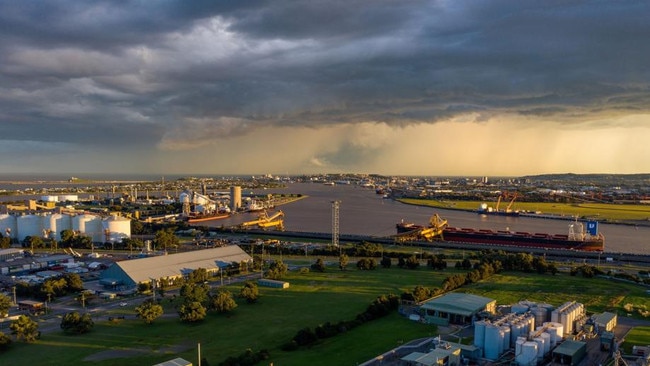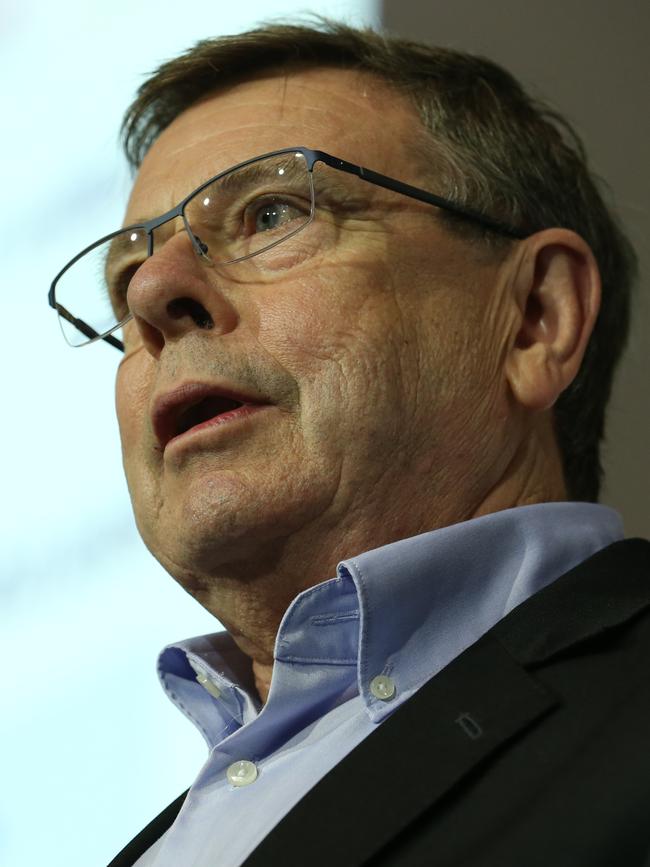Yancoal boss says customers looking for alternatives to Russian coal
Despite no formal sanctions on Russian energy exports, Yancoal boss David Moult says Australian miners are already fielding queries about alternatives.

Australian coal producers are already fielding queries from major trading partners on the availability of coal to replace Russian supplies if global sanctions are ramped up, according to Yancoal boss David Moult.
While there have not yet been any direct moves to sanction Russian exports of LNG and coal, Mr Moult said Yancoal’s customers had been getting in touch to see if the company had the capacity to make additional shipments from its Australian mines to replace Russian exports of both thermal and metallurgical coal.
“We‘re picking up noises. We’ve got nothing concrete, but we’re hearing from different places like Japan and Korea where they would normally buy Russian coal. We’ve even heard from a country in Europe that they might not want to buy any Russian coal any more,” he said.
Russia produces about 75 million tonnes of metallurgical coal a year, according to Macquarie figures, and about 360 million tonnes of thermal coal. About 40 per cent of its coking coal is for export, along with just under half of its thermal coal production.
Mr Moult said, although it was not yet clear whether Russia’s energy exports would become the target of sanctions, the company’s customers were clearly preparing for the eventuality. “I think we‘ll start to get more concrete approaches fairly quickly,” he said.
The benchmark price of Australian thermal coal surged to all-time highs of around $US245 ($336) a tonne over the last week on the prospect of further disruptions in the seaborne trade, as European democracies – heavily reliant on Russia’s energy exports – tightened sanctions in the wake of its invasion of Ukraine.

European Union nations are the biggest buyers of Russian coal. While the shipping distances make it unlikely that European buyers would look to Australia for a significant portion of their needs, Mr Moult said some reshaping of trade flows could result from the Ukraine crisis.
“We are getting lots of phone calls from different people asking what availability of coal there is – especially from our existing customers,” he said.
Yancoal has already been one of the biggest beneficiaries of thermal coal’s resurgence over the last year, reinstating dividend payouts at 50c a share on Monday night – making for a total shareholder payout of $930m.
The company booked record revenue of $5.4bn for 2021, up 56 per cent from 2020 despite a small fall in its total coal production, as the coal major roared back into profitability, delivering a $791m net profit. Yancoal declared a $1bn net loss for 2020 on the back of a $1.3bn non-cash charge on its balance sheet after a reconsolidation of some of its assets in the wake of an internal asset reshuffle by its major shareholder, China’s Yankuang Group.
Yancoal booked operating earnings before interest, tax, depreciation and amortisation of $2.53bn, up from $748m in 2020.
The turnaround came despite rising diesel costs pushing up Yancoal’s average cash production costs up 13 per cent for the year, underpinned by the remarkable resurgence in coal prices.
Yancoal realised an average $US141 a tonne for its coal sales in 2021, up 72 per cent from 2022.
And the company finished the year cashed up and on the hunt for new assets, after making an early $500m debt repayment in October and finishing the year net debt of $1.9bn and a dramatically reduced 24 per cent gearing ratio – compared to net debt of $3.57bn at the end of 2020 and a 41 per cent gearing ratio.
Mr Moult would not comment on speculation linking Yancoal to the potential acquisition of BHP’s Mt Arthur mine, but played down the prospects of a further expansion of its coal business, saying Yancoal was looking to diversify into “other minerals, energy or renewable energy projects”.
“One of the reasons we stocked up some cash at the moment is that we’re looking at opportunities,” he said.
Yancoal shares closed up 14.9 per cent, or 52c, to $4 on Tuesday.


To join the conversation, please log in. Don't have an account? Register
Join the conversation, you are commenting as Logout